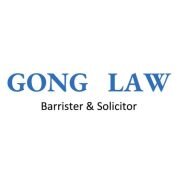Best Appeal Lawyers in Calgary
Share your needs with us, get contacted by law firms.
Free. Takes 2 min.
List of the best lawyers in Calgary, Canada
About Appeal Law in Calgary, Canada
Appeal law in Calgary, Canada involves the legal process of challenging a court's decision. This often occurs in cases where a party believes there has been a significant error of law, the judge has abused their discretion, or there have been other serious issues affecting the correctness of the judgement. The appeal process is applicable to both civil and criminal matters and is conducted in higher courts such as the Alberta Court of Appeal.
Why You May Need a Lawyer
Engaging a lawyer in appeal cases is important because the process is typically complex, with many legal nuances that may significantly affect the outcome. An appeals lawyer can review the case thoroughly for any legal mistakes, help draft enriched and precise appeal notices, represent you in appeal court, and guide you carefully through each step of the often challenging process. A lawyer can also provide valuable insights on expected results and assist in formulating compelling arguments that enhance your chances of a successful appeal. You might need a lawyer if you believe the trial court has erred, if the court's decision has a significant impact on you or your business, or if you seek to protect a favorable judgment from being overturned.
Local Laws Overview
In Calgary, the appeal process is governed by several laws and statutes. The Alberta Rules of Court provides relevant procedures to conduct an appeal, including filing appeals, serving necessary documents, and presenting arguments for the appeal. The Rules also lay out strict requirements for timely filings. There are also specific laws governing different areas of appeal, such as the Criminal Code for criminal appeals and the Civil Code for civil appeals. The Courts of Justice Act also outlines the jurisdiction of the different Alberta courts, including the Court of Appeal.
Frequently Asked Questions
What types of decisions can I appeal?
Generally, you can appeal any final judgement passed by the lower courts. In some rare situations, you can also appeal interim orders. However, the merit for appeal should be based on a significant legal mistake, abuse of discretion, or other severe faults affecting the judgement's correctness.
What is the time limit for filing an appeal?
The Alberta Rules of Court typically require filing an appeal within one month from the day the order or judgment was made in civil matters. In criminal matters, the time limit can vary, so it's advisable to consult a legal expert.
Can I present new evidence in an appeal?
Normally, an appeal centres on the legal issues and evidence presented in the original trial, so you cannot introduce new evidence. However, under certain circumstances and with the court's permission, new evidence may be allowed.
What happens if I lose the appeal?
If you lose an appeal, the lower court's decision stands. Depending on your case, you may have the option to appeal to a higher court, such as the Supreme Court of Canada. It's crucial to consult an attorney for accurate guidance based on your specific situation.
Is it worth appealing a case?
The worthiness of appealing a case varies and often depends on your individual circumstances. It's important to consult a lawyer to evaluate the potential benefits versus the expense and time involved.
Additional Resources
The Alberta Courts website is an excellent resource for understanding the procedures for appeals. Legal aid services in Alberta may also offer assistance for eligible individuals. The Law Society of Alberta provides a lawyer referral service, and the University of Calgary Law School may provide legal clinics for aid and advice.
Next Steps
If you believe you need to appeal a court ruling, the first step is to consult with a lawyer experienced in appeal law. They can guide you on assessing the merits of your case, timing considerations, and the necessary procedures. Once you have a legal advisor, you should gather all documents related to your case and draft an outline on why you believe the trial court decision was incorrect. Do remember that time is of the essence in the appeal process, so prompt action is necessary.
Lawzana helps you find the best lawyers and law firms in Calgary through a curated and pre-screened list of qualified legal professionals. Our platform offers rankings and detailed profiles of attorneys and law firms, allowing you to compare based on practice areas, including Appeal, experience, and client feedback.
Each profile includes a description of the firm's areas of practice, client reviews, team members and partners, year of establishment, spoken languages, office locations, contact information, social media presence, and any published articles or resources. Most firms on our platform speak English and are experienced in both local and international legal matters.
Get a quote from top-rated law firms in Calgary, Canada — quickly, securely, and without unnecessary hassle.
Disclaimer:
The information provided on this page is for general informational purposes only and does not constitute legal advice. While we strive to ensure the accuracy and relevance of the content, legal information may change over time, and interpretations of the law can vary. You should always consult with a qualified legal professional for advice specific to your situation.
We disclaim all liability for actions taken or not taken based on the content of this page. If you believe any information is incorrect or outdated, please contact us, and we will review and update it where appropriate.














